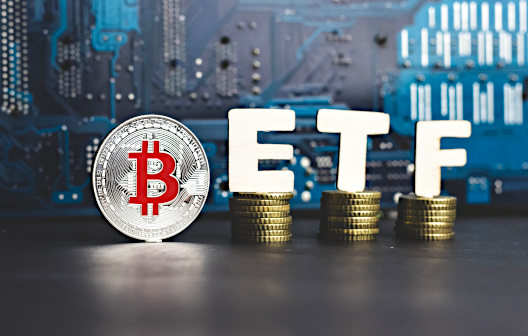Image Credit: Lukas (Pexels)
What the Approved Bitcoin ETFs do for the Markets
The questions “when will we see a Bitcoin ETF?” and “how will a Bitcoin ETF be structured?” have finally been answered. The answer to the first is “next week,” the second answer is more complicated. The Securities and Exchange Commission (SEC) has agreed to allow the first two U.S. Bitcoin futures-based ETFs. However, the ETFs won’t own Bitcoin. According to Bloomberg News, the accepted proposals by Invesco and ProShares are devised based on futures contracts. The derivative structure, rather than crypto asset ownership, differentiate them from previous Bitcoin ETF proposals the SEC had given the thumbs down.
Why is a Bitcoin ETF
Important?
A Bitcoin ETF that attempts to mirror the crypto’s price movement seems on the surface to be inferior to just buying the currency. Why include so many inefficient middlemen? Why not just invest in Bitcoin directly? First, in the form of a security, investors are allowed to hold these tradeable assets in their stock market brokerage account without going through any additional storage process.
A more important benefit is that a Bitcoin ETF is an investment vehicle; this allows qualified money (retirement assets) such as IRA deposits to take part in this investment class. Investors will be able to simply purchase the ETF as they would any other stock. Their brokerage account is as likely to be able to accommodate the transaction as any other listed and active stock.
Investors will also be capable of shorting the ETF if they believe the price of Bitcoin will decline. This is not something that can be done using the current cryptocurrency exchanges.
Familiarity may be the greatest benefit. Stocks, including ETFs, are much better understood throughout the investment and regulatory world than cryptocurrencies. Even as the coins and tokens develop a longer history, an investor looking to get involved in the digital currency could focus on trading a vehicle they already have experience with, one that follows the same rules. And rules are important to the various authorities regulating the markets to protect investors and oversee the sale of investments. While there is debate as to whether cryptocurrencies are securities or not, there is certainty as to whether an SEC-registered ETF is a security under securities law.
Bitcoin ETF
History
The first SEC application for a Bitcoin ETF was by the Winklevoss twins back in 2013. This and all others that followed had been rejected by the commission, citing concerns over regulation and volatility. Gary Gensler is in his first year as SEC Chair. He has a deep understanding of the asset as he had taught blockchain and cryptocurrency courses at MIT. After creating boundaries, he opened the door by saying crypto ETFs that comply with its strict laws could provide investors significant protections.
Changes in regulation and high scrutiny will continue to exist over cryptos. Just last Wednesday (October 13), The Bank of England’s deputy governor Jon Cunliffe called for urgent regulation and warned a crypto crash could cause a 2008-level financial meltdown.
The price of Bitcoin spiked above $59,800 this morning, hitting its highest level since April as speculators have more evidence the road toward broad acceptance and integration into the investment world has accelerated with the new ETFs.
Take-Away
ETF offerings come in many different flavors and risk levels. Bitcoin is still a volatile asset, and an ETF that tries to mimic that volatility is fraught with challenges. Also, most ETFs are far more diversified than one with a single underlying asset benchmark.
Expect much more attention paid to Bitcoin next week as the two new products launch. The approval of a Bitcoin ETF will certainly provide the leading cryptocurrency more legitimacy over the thousands of other digital assets. The SEC has approvals are a big step, and ProShares and Invesco have created a template for others to follow. As the futures markets mature for other digital assets, a broader range of crypto ETFs could be brought to market as well.
Managing Editor, Channelchek
Suggested Reading:
 Imagine a Bitcoin ETF With No Underlying Bitcoin Assets
|
 Severe Punishment for All Things Crypto in China – Who’s Impacted?
|
 Is Coinbase Planning to “School” the SEC on Cryptocurrencies?
|
 The “Volt Crypto Industry Revolution and Tech ETF” Stops Short of Crypto Investing
|
Sources:
https://www.invesco.com/us/en/insights/digital-assets-blockchain-cryptocurrency-etfs.html
https://cardinalguide.com/posts/what-is-qualified-money-and-non-qualified-money/
https://www.investopedia.com/investing/bitcoin-etfs-explained/
Stay up to date. Follow us:

|
